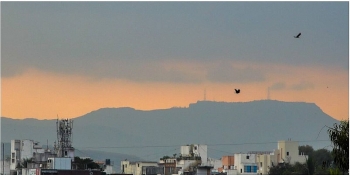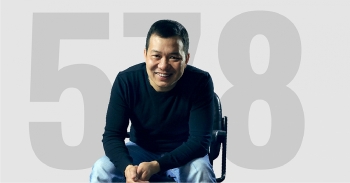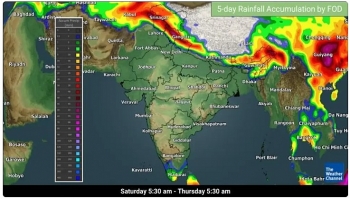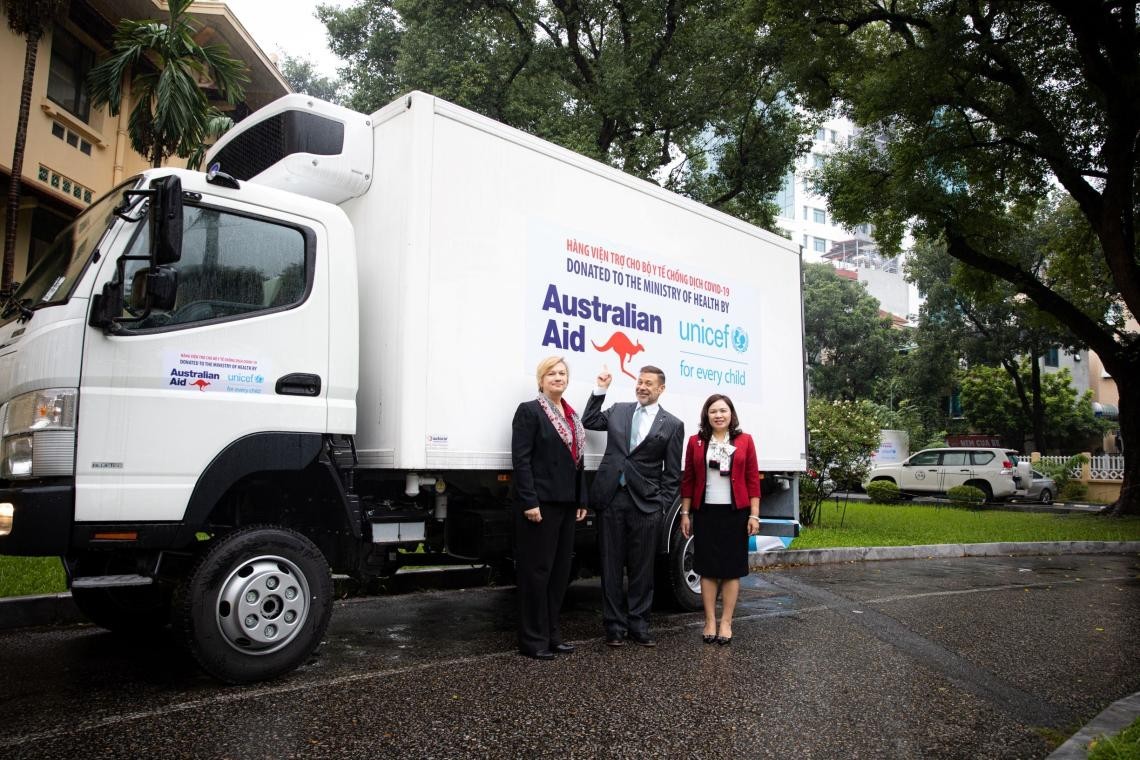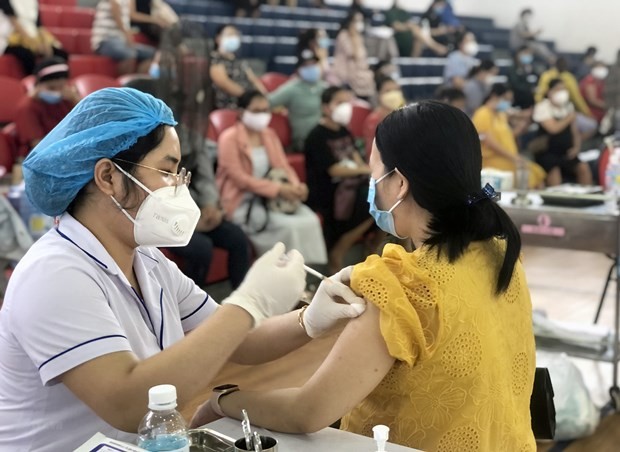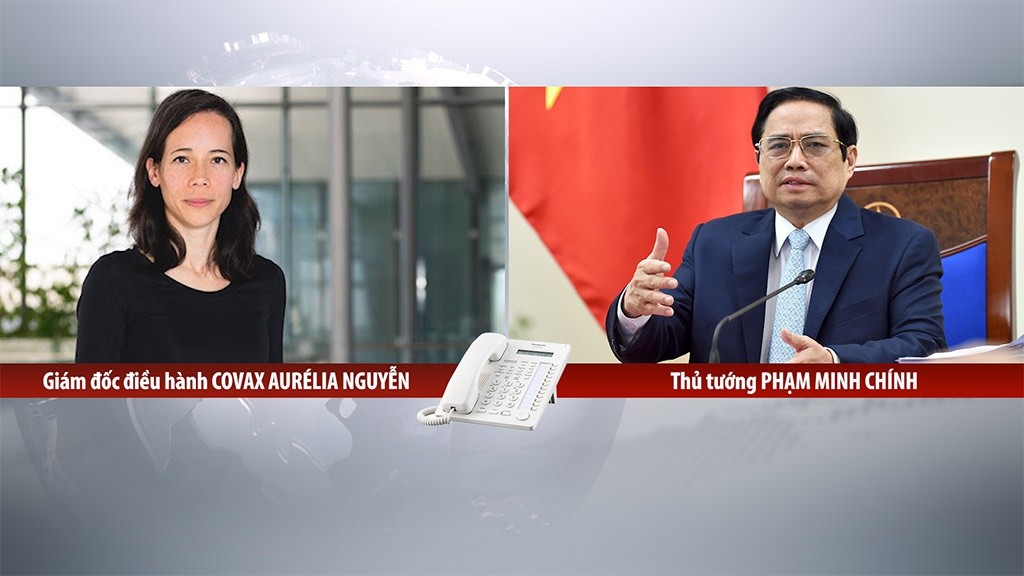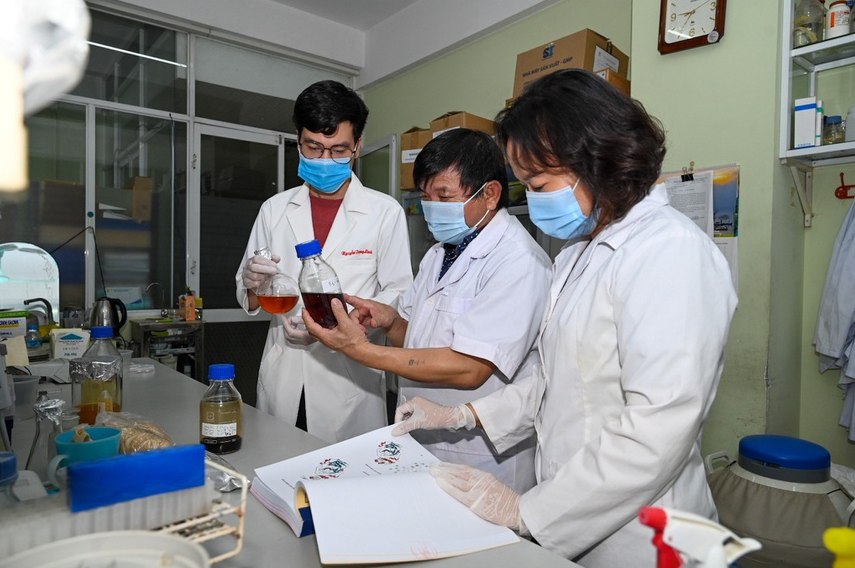India to seek funds in "Quad" alliance, countering China's vaccine diplomacy
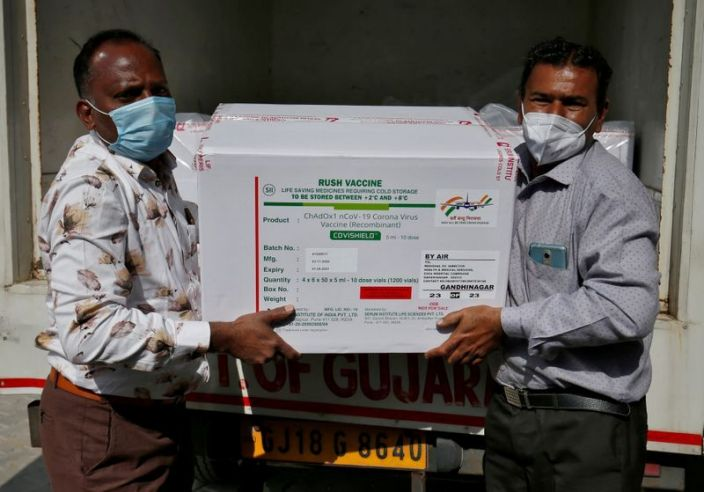 |
| Officials unload boxes containing vials of COVISHIELD vaccine outside a vaccination storage centre in Ahmedabad (Photo: Reuters) |
India has urged the United States, Japan and Australia to invest in its vaccine production capacity, an Indian government source told Reuters, as the so-called Quad alliance tries to counter China’s growing vaccine diplomacy.
Beijing has committed to provide at least 463 million doses of its home-made COVID-19 vaccines through exports and donations across the world from Asia to Africa, Europe and Latin America, according to Reuters calculations.
Two senior Indian officials said the Quad alliance, grouping the United States, Japan, Australia and India, was stepping up efforts to expand global vaccination to counter China’s growing soft power. India, the world’s biggest vaccine maker, believes it is best placed to steer the effort, they added.
Asked for comment, a U.S. State Department spokesperson did not refer to India’s request for funds or to China but said Washington was deeply focused on expanding global vaccination, manufacturing and delivery, The Reuters reported.
“Secretary (Antony) Blinken spoke with his Quad counterparts on February 18 to discuss cooperation on COVID-19 response and recovery and climate change, among other issues,” the official told Reuters.
There was no comment from the Australian government. But a government source said a global recovery from the COVID-19 pandemic was a policy priority for the country and its Quad partners. Australia is exploring a number of options to work with partners to enhance stability and prosperity in the region, the source said.
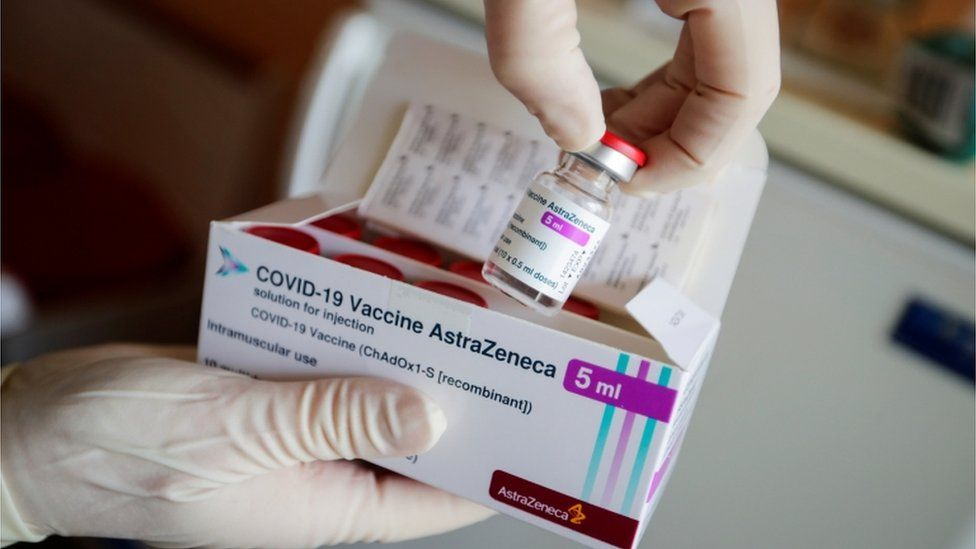 |
| Photo: BBC |
Japan’s Foreign Minister Toshimitsu Motegi told a news conference on Friday that the four countries discussed the “necessity and importance of international cooperation to ensure equal access to vaccines for developing countries,” at the February meeting, but nothing was decided.
An Indian foreign ministry spokesman did not respond to a request for comment.
One of the two Indian sources, an official who has direct knowledge of Quad alliance discussions, said the group had had several meetings about global vaccination.
“India has more vaccine options than any other Asian country at this point of time,” said the source, declining to be named as he was not authorised to talk on the matter. “India expects members of the Quad alliance to pay to ramp up production.
A second Indian source said that at the February virtual meeting, the Quad countries discussed ways to “encourage alternative medical supply chains, thereby implying less dependency on China”.
A top political advisory body in Beijing, the Chinese People’s Political Consultative Conference, said concerns that China was using vaccines to sway other countries were “extremely narrow-minded.”
China’s purpose was to make vaccines available globally, the foreign ministry said.
India’s Covid-19 vaccination: Billion of Doses
India said on February 28 that it had approved two coronavirus vaccines, one made by AstraZeneca and Oxford University and the other developed in India, for emergency use, a major step toward halting the spread of the coronavirus in one of the world’s hardest-hit countries.
Indian regulators are still considering approvals for other vaccines. One, made by Pfizer and BioNTech, has already been approved in the United States and Europe. Another, Russia’s Sputnik V, appears to be less far along, according to New York Times.
Officials in India moved quickly for a number of reasons. The country is No. 2 in confirmed infections behind the United States, and the outbreak is widely believed to be worse than the official figures suggest. The pandemic has devastated the economy, and the unemployment rate is at a 45-year high. Education has been disrupted, leading to worries about the long-term impact on the country’s youth.
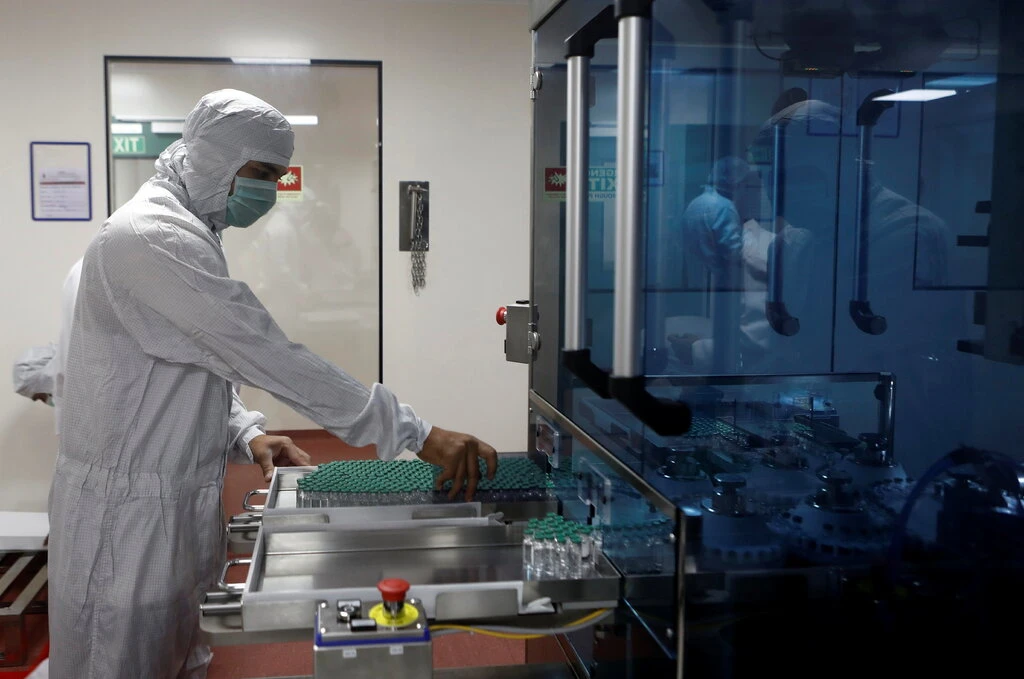 |
| A Serum Institute facility in Pune, India. The company has had a difficult time meeting a pledge to produce vaccines on a huge scale but says it is overcoming obstacles.Credit...Francis Mascarenhas/Reuters |
India will now face some steep challenges. Doses for more than 1.3 billion people must be paid for and distributed across a vast country. Government officials could also face doubts among the public about the safety and efficacy of the vaccine, fueled in part by the government’s lack of transparency about clinical trial protocols.
Criticism about the lack of clarity on the data that the regulator examined came swiftly after the two vaccines were authorized for emergency use.
On the Bharat Biotech vaccine, called Covaxin, the group said it was “baffled to understand what scientific logic has motivated the top experts” to authorize a vaccine still in clinical trials.
Dr. Somani, the regulator, said the vaccine had so far been administered to 22,500 trial participants, and “has been found to be safe.”
Both the AstraZeneca vaccine and the Bharat Biotech vaccine require two doses, Dr. Somani said. He did not specify whether the participants in Bharat Biotech’s continuing clinical trials had received both doses.
India plans to begin a vaccination campaign in the first three months of the year that will cover about one-quarter of the population by August. The first 30 million people inoculated will be health care providers, then police and other frontline workers. For the remaining 270 million people, the authorities will focus on those over 50 or who have conditions that might make them more vulnerable.
The rest of the population will be immunized based on vaccine availability and the latest science.
India has long experience with inoculating its people. India’s first mass vaccination took place in 1802, to fight smallpox. Subsequent efforts suffered from misinformation and slow acceptance.
The country has made strides in recent years. In the fight against polio, government officials aimed information campaigns at religious leaders, helping to nearly eradicate the disease. According to one study, a mass measles vaccination campaign saved the lives of tens of thousands of children between 2010 and 2013.
For the coronavirus campaign, the national government has asked states to prepare vaccination strategies. Some have formed task forces at the state, district and block levels. Over 20,000 health workers in about 260 districts have been trained so far to administer the vaccine, the Indian Health Ministry said.
India is also trying to sell a vaccine created by Bharat Biotech and the state-run Indian Council of Medical Research to 40 countries including Brazil, the Philippines and Zimbabwe. Bharat Biotech says it can make about 700 million doses of the shot a year.
Indian vaccine makers are also planning to produce more COVID-19 vaccines developed by the United States and Russia, including Johnson & Johnson.
A top Indian vaccine official told Reuters in January that the government had also held discussions with U.S. companies Pfizer Inc and Moderna Inc about making their shots in India.
Serum’s Novavax partnership holds “the key to the Quad’s diplomatic alliance in vaccines and push China out of regional vaccine sales”, one of the Indian sources said.
“The focus is also on making sure the Quad alliance secures all the key markets for vaccines,” he said.
Indian companies will also produce about 300 million doses of Russia’s Sputnik-V vaccine, but the source said Washington was not keen on helping expand Moscow’s clout in vaccines.
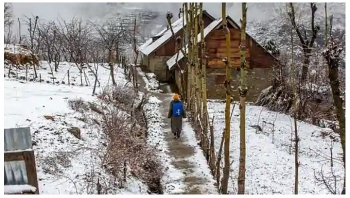 | India daily weather forecast latest, March 1: Many parts of the western Himalayan region to receive light rain and snow Under the influence of a western disturbance, many parts of the western Himalayan region will receive light rain and snow in the next 24 hours. |
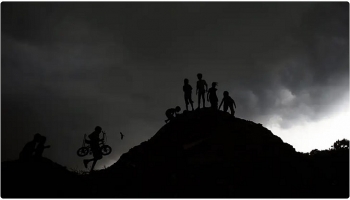 | India daily weather forecast latest, February 28: Scattered rains, snow and thunderstorms to cover Sikkim, Arunachal Pradesh Parts of Northeast India, particularly the states of Arunachal Pradesh and Sikkim, are set to experience a fresh spell of rainfall and snowfall for the ... |
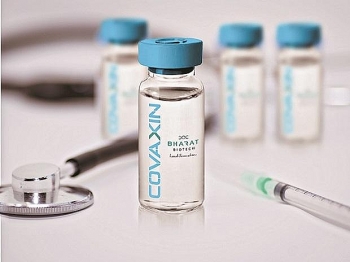 | Vietnam asks for India’s COVID-19 vaccines aid Authorities of Hai Duong province – the current biggest epicenter in Vietnam – is asking for an aid package of 200,000 – 300,000 doses of ... |
Recommended
 World
World
India strikes back at terrorists with Operation Sindoor
 World
World
India sending Holy Relics of Lord Buddha to Vietnam a special gesture, has generated tremendous spiritual faith: Kiren Rijiju
 World
World
Why the India-US Sonobuoy Co-Production Agreement Matters
 World
World
Vietnam’s 50-year Reunification Celebration Garners Argentine Press’s Attention
 World
World
"Will continue offering our full support to Indian govt": US FBI Director after Pahalgam attack
 World
World
"Great Leader": JD Vance Lauds PM Modi During His India Visit
 World
World
Trump’s Tariff Pause: A Strategic Move from “The Art of the Deal”?
 World
World

